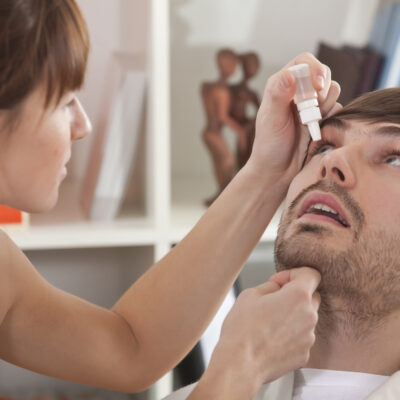
Easily identifiable causes and symptoms of eczema
Not all of us believe that beauty is merely skin deep, but when there are red, itchy rashes that are inflamed, cracked and splitting our skin, we might not really enjoy being subjected to them. Eczema or dermatitis is a skin condition that inevitably affects people of all ages. A non-communicable disease, eczema has unambiguous triggers and equally clear symptoms that you can instantly identify.
The causes of eczema are many indeed. The triggers can vary for different people and even for the same person, they can change according to the season of the year. How the symptoms of eczema manifest on the skin can also depend on many other factors like the age of the person, how often the condition recurs and how much the scratching is restrained. Allergens that stimulate hypersensitive allergic reactions or irritants that cause inflammation or discomfort to the body can cause eczema. Some examples of allergens and irritants are:
- Noxious smoke from environmental air pollution or burning cigarettes
- Cold air, dry weather, hot temperature, and sweat
- Hand or body soaps, shampoos, laundry detergents, disinfectants, cleaning liquids, acids or chemicals
- Dust mites
- Pollen from flowers and plants like poison ivy and poison oak
- Paints and furniture polish
- Pet dander or hair
- Rough materials or synthetics that touch the exposed skin like wool, latex or polyester
- Sensitivity to moldy surroundings
- Foods like eggs, nuts, shellfish, soy, kiwi, pineapple, milk
- Upper respiratory infections
- Metals like nickel and cobalt found usually in jewelry
- Intense natural or man-made fragrances
- Essential oils
- Health conditions like asthma and hay fever
Eczema begins basically as a simple rash that is red and mildly itchy. Over time, it can become worse, get inflamed and in acute cases may even to lead to severe scratching that results in bleeding. Eczema rashes are ordinarily seen on the scalp, front and nape of the neck, face, on the forehead, especially around the eyes, eyebrows, cheeks or on the nose, back of the knees, on the elbows, wrists, hands, or fingers, on the lower part of the feet, ankles, the toes and sometimes on the soles too.
It may appear on other areas of the body as well like the chest, the back, thighs, buttocks, and groin. Eczema gives rise to dry skin that can cause a burning sensation, makes the skin in the affected area thick, brittle, rough or tight. The eruptions sometimes tend to swell and leak fluids, otherwise called ‘weeping of the skin.’ This is a sign of the eczema being infected by bacteria.
Change in the color of the skin, either lightening or darkening of the damaged area, scaly patches and stubborn dandruff are other symptoms of eczema. Periods of flare-ups and respite from rashes can also occur in some types of eczema. Acute itching of the skin results in gashes and this, in turn, results in pain and irritation and gives rise to more itching. This is a cycle that can be stopped only by alleviating the symptoms with the proper treatment of eczema.


